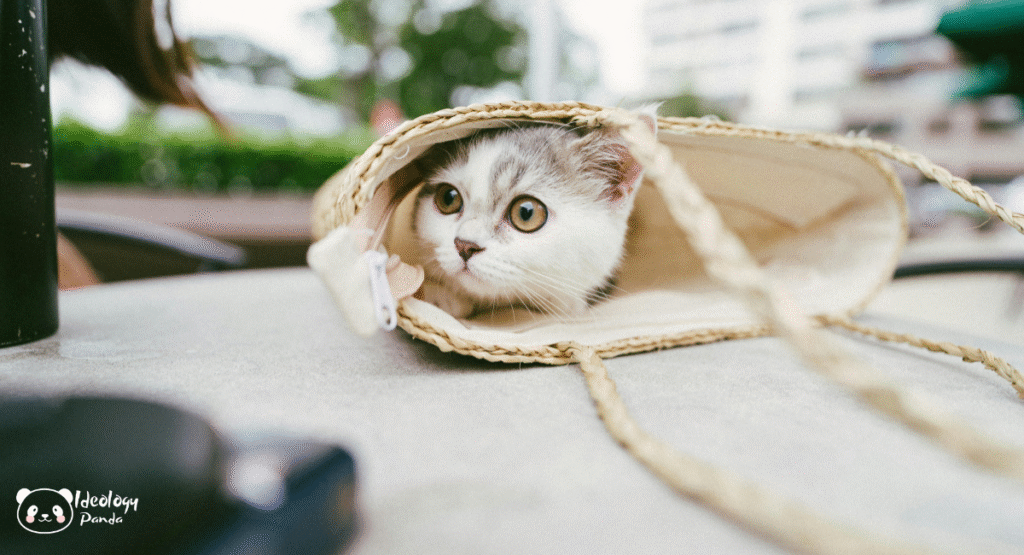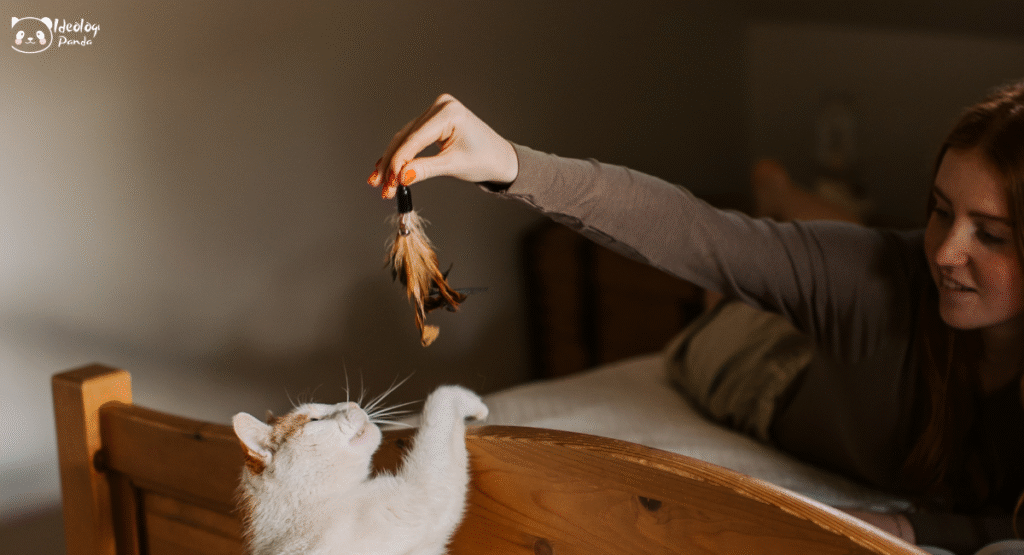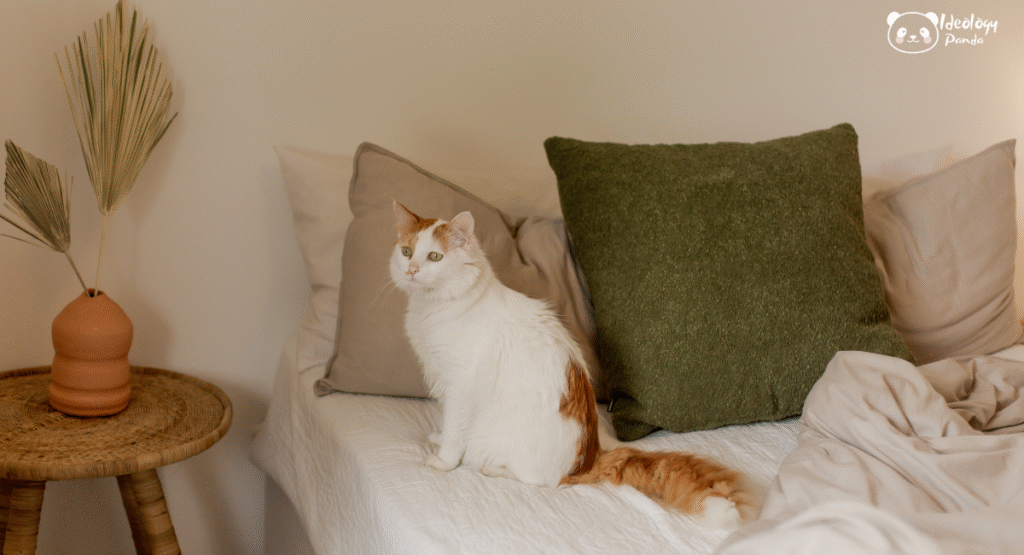Why are cats so curious? This question fascinates every cat owner who sees their feline friend investigating drawers, staring at flickering lights, following shadows, or squeezing into boxes and cupboards as though on a secret mission. Curiosity in cats is one of their most endearing yet puzzling traits. To understand why cats are so curious, we need to explore their evolutionary history, sensory powers, intelligence, and emotional needs.
Why are cats so curious? Cats’ curiosity is rooted in their survival instincts as hunters. Their sharp senses detect subtle sounds, smells, and movements, triggering exploration. Curiosity helps them assess safety, locate prey, and understand their environment. Their intelligence drives them to investigate new objects, scents, or changes to stay mentally stimulated and prevent boredom. Closed doors, moving shadows, or unfamiliar bags activate their natural prey drive and territorial nature. Exploring also releases dopamine in their brain, making curiosity feel rewarding. Overall, curiosity is essential for their physical and mental well-being, keeping them alert, active, and emotionally enriched every day.
10 Reasons Cat Are Curious & How They Show It
1. Survival Instinct
Why: Their ancestors depended on curiosity to hunt and survive.
How They Show It: Stalking insects, chasing small movements, or exploring hidden corners.
2. Strong Senses
Why: Their powerful smell, hearing, and sight detect subtle changes.
How They Show It: Staring intensely at “nothing,” ears twitching towards distant sounds.
3. Intelligence & Learning
Cats are smart and love learning about their environment.
How They Show It: Pawing new objects, testing reactions by knocking items off surfaces.
4. Boredom Buster
Curiosity keeps them entertained.
How They Show It: Exploring cupboards, bags, boxes, or watching you do chores.
5. Prey Drive Activation
Moving things trigger hunting instincts.
How They Show It: Pouncing on strings, toys, or shadows as if hunting real prey.
6. Territorial Nature
They want to ensure their space is safe.
How They Show It: Sniffing new items thoroughly, patrolling the house frequently.
7. Neophilia (Love for New Things)
Cats are attracted to new scents, textures, and objects.
How They Show It: Instantly investigating bags, deliveries, or furniture rearrangements.
8. Social Connection
They’re curious about their humans and companions.
How They Show It: Following you from room to room, watching your activities closely.
9. Comfort and Safety Check
They investigate to ensure every part of their environment is safe before resting or relaxing there.
10. Dopamine Release
Exploring and discovering something new releases dopamine in their brain, making curiosity a rewarding and addictive behaviour.

Why Are Cats So Curious About Boxes and Bags?
Why are cats so curious? Cats are naturally curious about boxes and bags because these items mimic safe hiding spots and hunting dens used by their wild ancestors. Boxes provide security, warmth, and a concealed place to observe their surroundings without being seen, making them feel protected. Bags, with their crinkly textures and new scents, trigger curiosity and sensory exploration. Entering boxes or bags also satisfies their instinct to hide before ambushing prey, even if they’re just playing. Additionally, these objects are novel and unfamiliar, activating their love for exploring anything new in their territory. It’s a mix of safety, play, and instinctive behaviour.
Curiosity As Part of Play Aggression
Why are cats so curious? Cats’ curiosity is closely linked to aggression, especially in kittens and young adults. Play aggression refers to their rough play behaviours like pouncing, biting, and clawing, which mimic hunting skills needed in the wild. When a cat is curious about moving objects, your hands, feet, or dangling strings, their hunting instincts awaken. They stalk, chase, and attack as part of play, driven by curiosity to explore and test their environment for potential prey. Curiosity makes them investigate small movements or sounds, leading to playful ambushes. For example, your cat may hide behind furniture and suddenly jump out at you or another pet. This behaviour is not aggression out of anger but is curiosity-driven hunting practice. It teaches them timing, speed, and accuracy. However, play aggression can become problematic if your cat begins biting too hard or scratching aggressively during play. To manage this, redirect their curiosity and hunting drive towards toys like feather wands, laser pointers, or interactive puzzles instead of your hands. Understanding why cats are so curious and how it fuels their play aggression helps you respond calmly, avoid punishment, and provide healthy outlets. This keeps their natural instincts satisfied while maintaining safe, positive playtime interactions.
Can Curiosity Become a Problem?
Yes, while curiosity is natural and healthy for cats, it can become a problem if it leads to dangerous behaviour. Why are cats so curious ? Their strong instincts drive them to explore everything, which sometimes makes them chew electrical wires, eat toxic plants, jump onto hot stoves, or squeeze into unsafe spaces, risking injury. Excessive curiosity can also cause stress if they become overstimulated by constant changes. Some cats might knock over valuables or open cupboards, creating household mess or hazards. To manage problematic curiosity, ensure your home is cat-proofed, remove toxic or dangerous items, and provide safe enrichment like toys, scratchers, and climbing structures to fulfil their curiosity without risk.
Takeaway
Why are cats so curious? This question often comes to every cat owner’s mind when they see their cat exploring every corner of the house. Why are cats so curious about tiny movements, sounds, or smells? It is because their natural hunting instincts and intelligence drive them to investigate everything around them. Why are cats so curious even after being domesticated? Their playful and alert nature keeps them active, engaged, and mentally stimulated throughout their lives.
final thought
Why are cats so curious? This is a question every cat owner asks at some point when they see their cat poking its nose into bags, climbing into cupboards, or staring intensely at invisible things. Why are cats so curious about everything, from small insects to a simple pen on the table? The answer lies in their natural instincts as hunters. Even though domestic cats are fed daily, their brains are wired to stay alert and observe everything around them as potential prey or threat. Why are cats so curious when it comes to closed doors or cupboards? Because they want to know what is hidden or if there’s something exciting they might be missing. Why are cats so curious about sounds like rustling plastic or moving curtains? Their sharp hearing picks up the slightest noises, triggering their instinct to investigate. Why are cats so curious even after hours of playing or exploring? Their curiosity is a sign of high intelligence, mental stimulation, and natural playfulness that keeps them active, confident, and happy. Understanding why cats are so curious helps us create a safe and engaging environment for them. Providing interactive toys, scratch posts, cat trees, and window perches allows them to fulfil this instinct safely. In the end, instead of feeling annoyed when your cat explores every corner, remember it is their way of learning, staying entertained, and feeling fulfilled as natural hunters.




